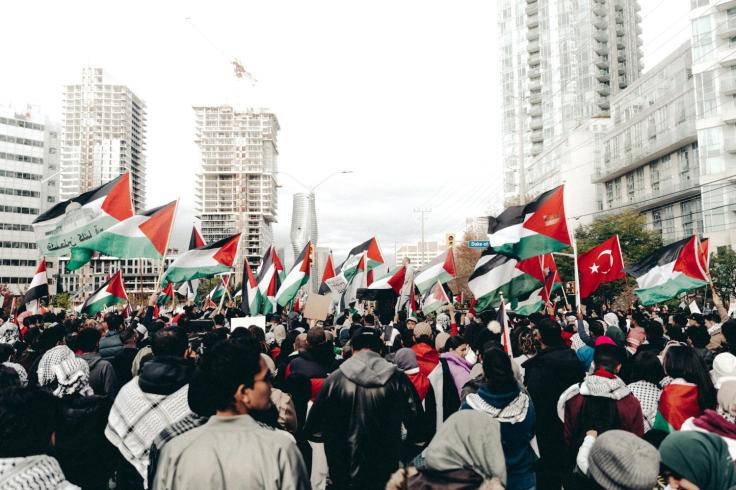Academic workers at the University of California campuses in Los Angeles and Davis have joined the ongoing strike in solidarity with pro-Palestinian protesters, following the lead of their counterparts at UC Santa Cruz.
The strike, organized by UAW Local 4811, aims to address alleged unfair labor practices and to defend the rights of students and workers participating in pro-Palestinian demonstrations. With the possibility of more campuses joining next week, the movement is gaining momentum and drawing significant attention to the issues at hand.

Growing Support and Participation
UAW Local 4811, representing 48,000 graduate student workers, postdoctoral scholars, and other academic employees across the UC system, announced that thousands of its members at UCLA and UC Davis have heeded the call to strike. The union represents 6,400 employees at UCLA, 5,700 at UC Davis, and over 2,000 at UC Santa Cruz. While it is unclear how many are currently withholding their labor, the potential participation of over 14,000 employees underscores the scale and significance of the movement.
The strike's primary focus is on addressing what the union describes as unfair labor practices by the UC system. Union members have faced arrests and disciplinary actions for their involvement in pro-Palestinian protests, which the union argues reflects a bias in favor of anti-Palestinian speech over pro-Palestinian expression. Anny Viloria Winnett, the union's academic student employee unit chair for UCLA, highlighted the harsh responses protesters have faced, including physical violence and the threat of further disciplinary actions.
According to Winnett in the union's news release, the academic community throughout the state has been engaging in peaceful protests. However, they have faced severe responses, including physical violence, such as being kicked, maced, and attacked with gas canisters and fireworks. Riot police have even pointed weapons at them. Additionally, many protesters have been arrested, disciplined, and banned from the campuses where they reside and work.
READ MORE : University Presidents Defend Negotiation Tactics To End Pro-Palestinian Protests At Congressional Hearing
Legal and Administrative Responses
The UC system has labeled the strike as illegal, raising the stakes for both the union and the administration. University officials have expressed concern over the impact of the strike on students' education. Mary Osako, UCLA's Vice Chancellor for strategic communications, emphasized the disruption caused by the strike to the educational environment. Osako expressed concern about the impact of deliberate disruptions on students' education, stating that students pay tuition to learn. She emphasized that students prefer to focus on their professors' teachings rather than being distracted by loud noises from protests outside their classrooms.
In response to the strike, police have taken significant action to clear protest encampments from UC campuses. Hundreds of individuals have been arrested, with campus police and external law enforcement in riot gear involved in the efforts. The situation at UCLA escalated on April 30, when counterprotesters attacked a protest encampment, and campus police did not immediately intervene. The following day, law enforcement cleared the encampment and arrested more than 200 people.
Union Demands and Future Actions
The union is calling for the UC system to drop charges against those who have been arrested or disciplined in connection with the protests. Emily Weintraut, the union's academic student employee unit chair for UC Davis, emphasized the need for the administration to respect the rights of free speech and peaceful assembly. Weintraut called on UC System officials to dismiss charges against individuals who have been unjustly arrested or disciplined. She emphasized this as an initial step to address what the union perceives as unfair labor practices and to uphold their rights to free speech and peaceful assembly, which they believe have been guaranteed.
The strike's expansion to more campuses underscores the growing support for the movement and the increasing pressure on the UC system to address the union's demands. With three additional campuses potentially joining the strike next week, the situation remains dynamic and fluid. The union's actions reflect a broader struggle for workers' rights, free speech, and the ability to protest without fear of retaliation.
As the strike continues, the academic community and the UC administration are navigating a complex and contentious landscape. The outcome of this dispute will likely have lasting implications for labor relations and free speech policies within the University of California system.
© 2025 University Herald, All rights reserved. Do not reproduce without permission.








